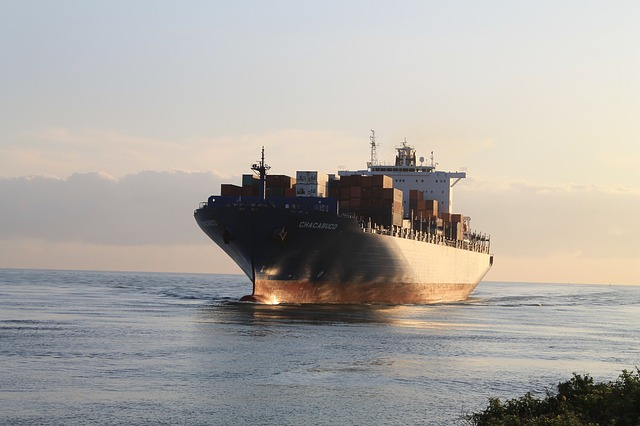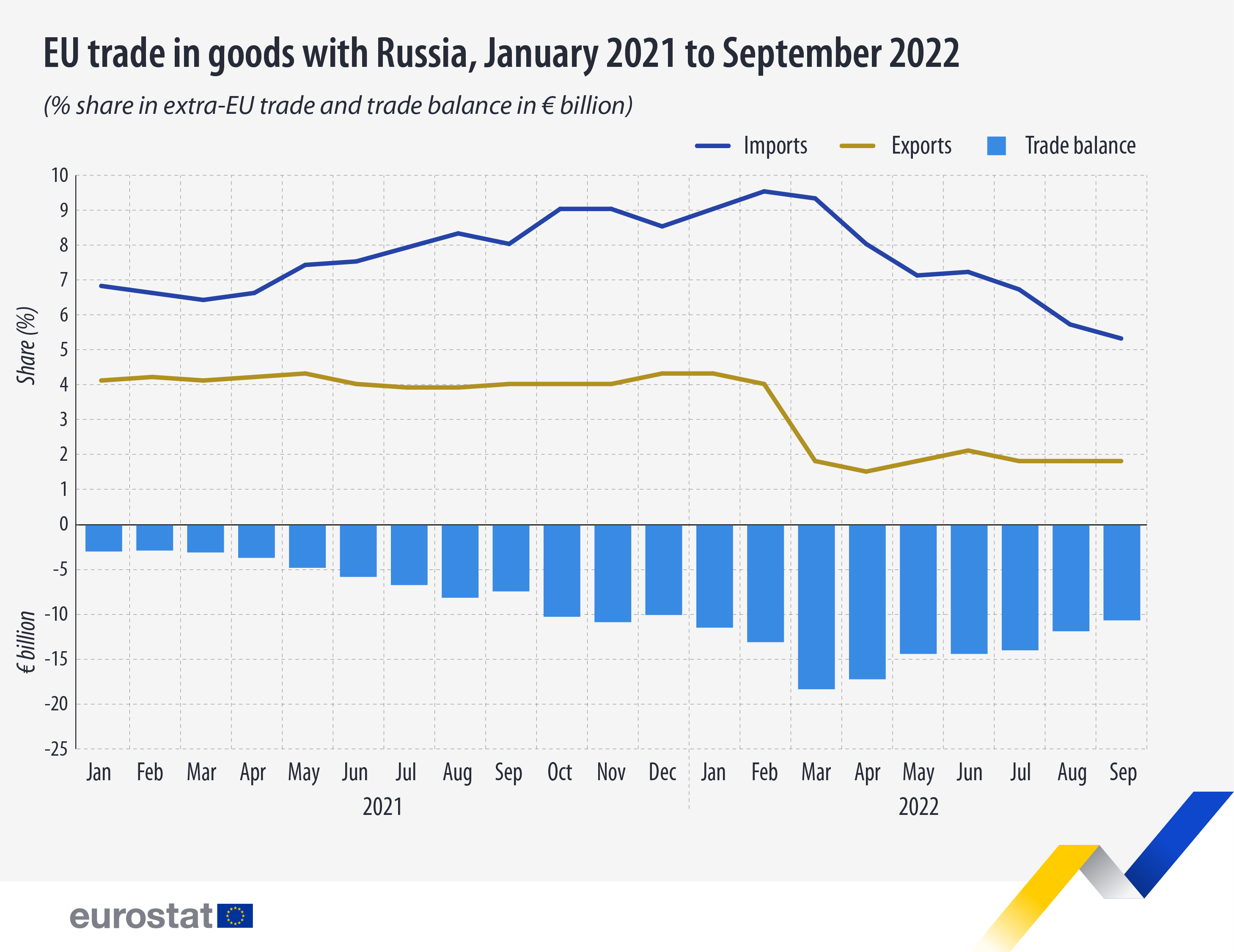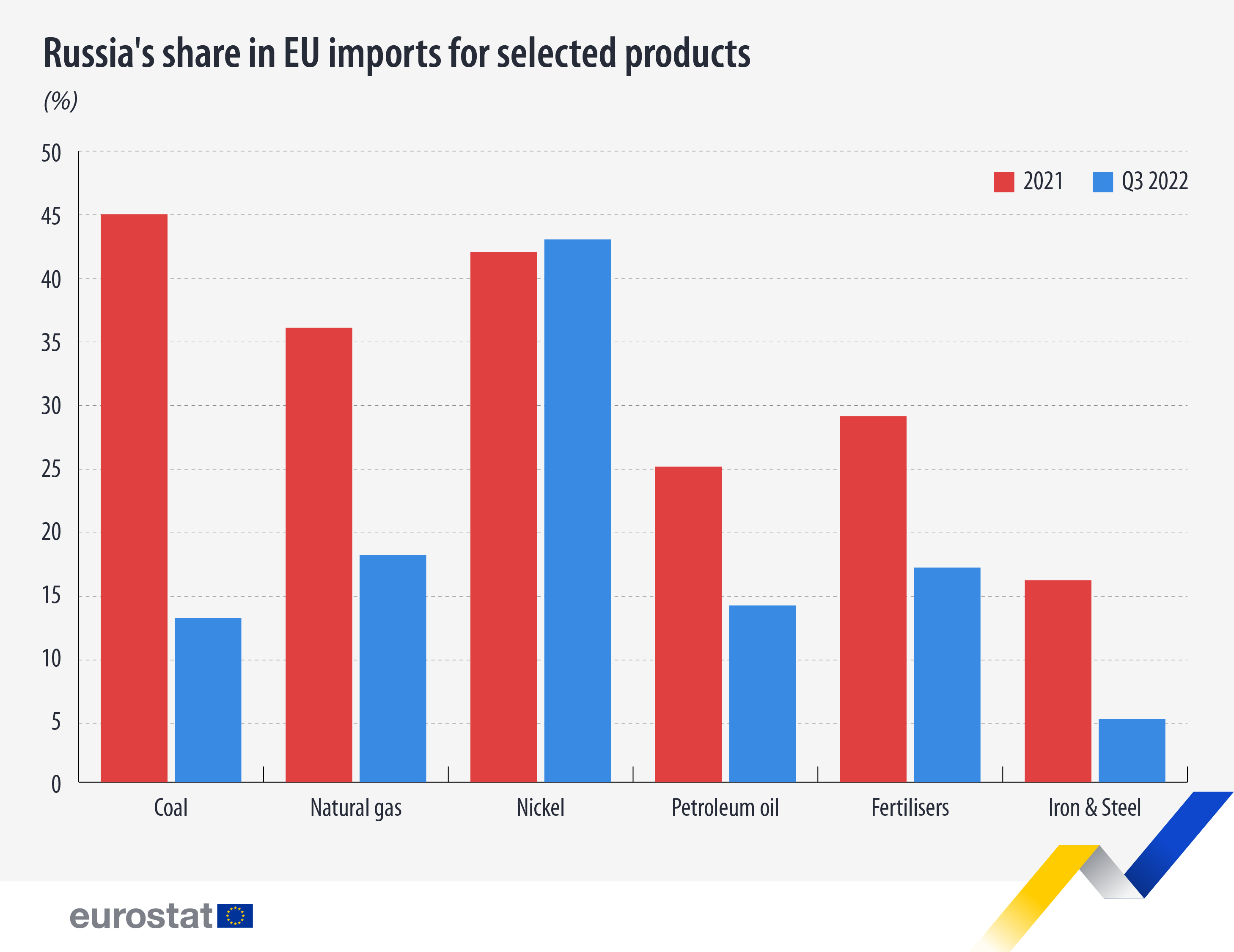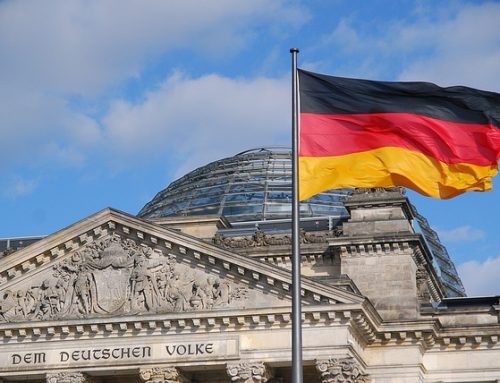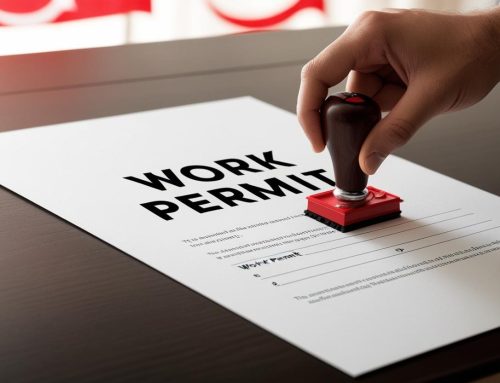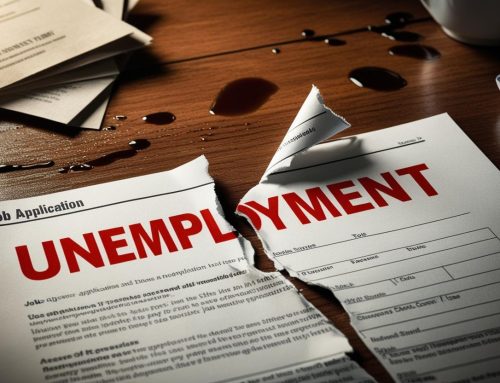January 30 ,2023
EU trade with Russia has been strongly affected following Russia’s invasion of Ukraine, with the EU imposing import and export restrictions on several products. The effects of these measures have been particularly visible in the latest months.
Considering seasonally adjusted values, both exports and imports dropped considerably below the levels prior to Russia’s invasion. Russia’s share in extra-EU imports fell from 6.4% to 3.8% between February 2022 and September 2022. Over the same period, extra-EU exports to Russia dropped from 2.3% to 1.1%. The EU’s trade deficit with Russia, peaked in March 2022 at €19.6 billion. It then progressively decreased and in September 2022 stood at €9.7 billion.
When looking at Russia’s share in extra-EU imports for six key products, a strong decline is visible for coal, natural gas, petroleum oil, fertilisers, and iron & steel, while for nickel the share increased slightly. In particular, the highest drops have been recorded for coal (from 45% in 2021 to 13% in the third quarter of 2022), natural gas (from 36 % to 18 %), fertilisers (from 29% to 17%) and iron & steel (from 16% to 5%).
Source: Eurostat
Legal Notice: The information in this article is intended for information purposes only. It is not intended for professional information purposes specific to a person or an institution. Every institution has different requirements because of its own circumstances even though they bear a resemblance to each other. Consequently, it is your interest to consult on an expert before taking a decision based on information stated in this article and putting into practice. Neither Karen Audit nor related person or institutions are not responsible for any damages or losses that might occur in consequence of the use of the information in this article by private or formal, real or legal person and institutions.

